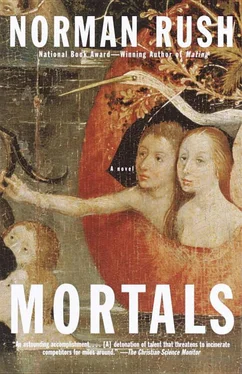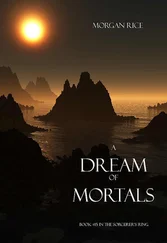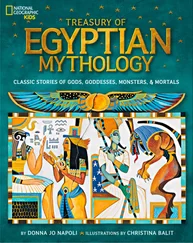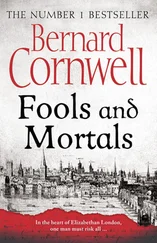I want you to know that I don’t blame Joel for his defects, by the way. He is the product of several tragedies larger than he is, so to say. He has no relationship whatever to the written word, for example, which is now common. All his referentia are audiovisual.
This is what I think is happening with American children in a very general way, and what I think happened to Joel. I think people are finding their own children boring. And this is due to two factors. Factor one is that by the time a child normally would be a developed persona, a real individual, he or she has become a kind of playback machine for various media tropes and loops: he or she has become what he or she beheld, that is, your child is old television, a rerun. Your child is things you have seen yourself and have outgrown. Then factor two comes into play, to wit, that when the parent looks at his boring child he knows that on television or video, even as he looks into the face of his child, there is bound to be something on that’s more interesting than the child before him.
This is my Joel. His parents were bored by him. Add to this that they made their livings in media themselves and were, I would say, themselves boring. Even his beauty failed to interest them, I feel safe in saying. Both parents were goodlooking, so he was expected to be beautiful.
This is my television-as-the-root-of-all-evil general theory of American civilizational decline. You will observe that it explains a lot, including why children are out of control to the point of bringing guns to school and scribbling their initials all over the material landscape. By the way, I never wanted television in our house. Ask Ray. It was purely visceral with me. I didn’t know why, but I hated the thought of it. Ray wanted it. So we got it.
I can pretty well re-create what happened finally between Joel and his parents. They didn’t mind that he was gay, apparently, but they hated it that he was so childish. He tried to be a model, but something childish showed through in photographs and it didn’t work out for him. I feel responsible for him. I’m not sure there are hordes of people who would want Joel once they got past his fleshly envelope, if you know what I mean. He has a little trouble with his fricatives, for example, not a real speech defect but kind of embarrassing and, I think, one of the reasons he got into the habit of not talking much. He has had the experience of being tossed away after something in him seemed not to live up to his exterior. Also, Joel is afraid of life, but in an adorable way. For example, every morning he makes me read the obituaries to see if anyone younger than he is has died. He doesn’t want the names, just the ages, if there are any. And these days there often are. At this point I should mention a shining virtue of his. He is faithful. Fidelity is natural to him. Even if he flirts now and then, this is true of Joel. So, to continue. Joel gets an oversupply of attention for his exterior and I get a paucity of attention for mine. I have a rich interior and a poor (face it) sort of exterior. He has a rich exterior and internally he is a mixed bag, say. Nobody knows what I am because of what my exterior oh so wrongly suggests. So in a way we make a perfect object together.
I badly want you not to misperceive me over Joel. I sensed in your questions that you might be, thus I want to emphasize what I love about him. He is the kind of man who can be loved. He is loyal. He is still maturing. He is less precipitate in conversation than he was. And he is beautiful. With him I have an experience of sublime beauty beyond anything I ever thought I would have. His innocence, when it isn’t driving me insane, is probably good for me. And I think I see more, now, of what he sees in me. It’s my mind and my wit that attract him, those things and my talent for striking back. I get revenge. He has seen me in action, my fangs and talons out. He sees me as an armed thing. He is, by nature, a disarmed personality, which has been a disaster because his beauty has attracted the unjust in greater numbers than the just.
Ray stopped reading, feeling coldness blossom inside himself. He thought, This is for me, warnings for me, these letters are acts of war … He is striking at me through her. Ray continued reading.
Also, there is a fact of gay life that comes into this that you may not appreciate. I can have my beautiful man and enjoy him intensely as long as I can and not worry about the things I would be worrying about if we were planning to reproduce. There are gay men who want to adopt and so on, a minority, and go for it, I say, if you want that. But there is a certain freedom to enjoy beauty per se that straights must lack, with their great mission of reproducing our species, and so having to consider other qualities, such as brains, for example.
Ray had to stop. He thought, I’m surrounded, this is demonic … The idea is to suggest that Iris is my Joel, my ornament, my toy … We have no children, et cetera, that’s the subtext, that’s it! The bastard!
Now he had to finish the letter. He had to see what else there was that was like this. His hands were shaking. He hadn’t eaten. That had been a mistake.
But getting back to what Joel sees in me, there’s a little more to it. Joel is developing what I would call stirrings of personal ambition, a new thing. He sees me as a writer and a sort of facilitator. He has an idea for a screenplay. In fact he has two ideas. In the first screenplay, there is a pet uprising. Pets attack and kill their owners. And those fortunate enough not to own pets are killed by wild animals who sense their moment of opportunity and rush in out of the woods to do the deed. Farm animals kill their owners also. Snakes leap up out of toilets, of course. That’s the entire thing. He has made a few notes, mainly of clever ways that the smaller and more innocuous pets might dispatch their much larger human owners. I’m trying to be encouraging to him. By the way, there is no reprieve for humanity in this movie. The pets win. That’s the first screenplay. The second screenplay is what he refers to as a screwball comedy. He doesn’t really know what a screwball comedy is, but he thinks he is conceiving one. In the second screenplay a standard plot (he is vacillating between a western and a film noir) proceeds. The comic element in this western or film noir is as follows: everyday objects employed in the film, like guns or hammers or knives and forks, keep changing in size. In one scene a fork will be a tiny implement like a pickle fork and in the next it will be the size of a pitchfork. A character will, as Joel envisions it, charge around in shoes the size of coffins. Or he will attempt to charge around. Sometimes it will be impossible! The action will be totally impeded by this unreliability in the size of objects, but nobody will ever allude to it. Hence the comedy. And there will be no suggestion as to why this is happening. And that is the screwball comedy. He thinks we could collaborate beautifully on this. I do, in fact, think there is something funny in this idea. It’s certainly high concept.
Just one of Joel’s virtues, not so far mentioned, that I want to touch on. He is kindness itself. A great graphic artist named Posada is from here, a nineteenth-century artist. There is a little museum and gallery devoted to him. Posada was a genius who did upwards of fifteen thousand engravings and woodcuts. But of the original plates and blocks only about four hundred and fifty survive. The bulk of the graphic work was in periodicals that were destroyed or that moldered away years ago. There is no record. My Joel got tears in his eyes when he heard all this.
Why should I feel I want to humiliate this good, boyish man who seems to love me, almost? When you write me, give me any help you can, but also know that it has been helpful just to write this and know that you will be reading it.
Читать дальше












